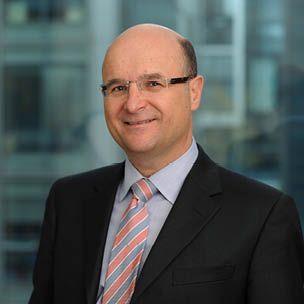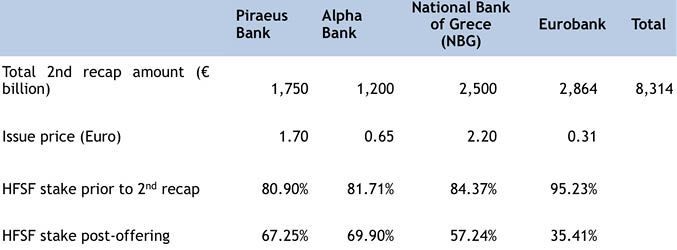Most countries featured in CEE Legal Matters are also EBRD countries of operations. I am therefore very grateful for the opportunity to contribute the “guest editorial” to this edition of the journal.

Norbert Seiler, Deputy General Counsel, European Bank for Reconstruction and Development
I had the good fortune to join the EBRD’s legal department back in 1991, a few months after the Bank started its operations, and have been part of the Bank’s legal team ever since. Initially I worked as a transaction lawyer on EBRD project financings, sovereign loans, equity investments and Treasury operations. I started the Bank’s law reform initiative the “Legal Transition Programme”, and I eventually assumed responsibility for several legal teams working on investments and loan financings in the Bank’s countries of operations, Treasury operations, and institutional and administrative matters for the Bank’s own needs as an international financial institution.
The EBRD was established to assist the countries of Central and Eastern Europe in their transition to market economies after the collapse of communism and the fall of the Berlin Wall in the late 1980s. I was based in New York at the time when these dramatic events unfolded, working in-house at the New York branch of an Austrian bank. Along with the rest of the world I was fascinated and amazed by these developments: Having grown up in Vienna some 60 km away from the “Iron Fence” border between neutral Austria and the Warsaw Pact countries of Hungary and Czechoslovakia, it had been altogether inconceivable that our binary world order, with the free market economies of the West and the closed command economies in the East, would ever come to an end.
When I first learned about the plans of the international community for a new development bank, which would assist the transition and private sector development in Central and Eastern Europe, I hoped that one day I might be able to join that bank to make my own modest contribution to the region’s transformation. I eagerly followed media reports about the international negotiations culminating in the inauguration of the Bank in London in early 1991, and I eventually submitted my application. I was not aware at the time that I had met the Bank’s newly appointed General Counsel on a transaction in New York, when he was still a senior partner at a prominent Wall Street firm. I suppose I must have left a favorable impression on that deal, because he invited me to join his fledging department, which I gladly accepted.
When I arrived at the Bank it had seven countries of operations – Hungary, Yugoslavia, Czechoslovakia, Poland, Romania, Bulgaria, and the USSR. It was still to make its first loans or equity investments, and it had not yet launched its inaugural bond issue in the international capital markets. The legal department consisted of eight lawyers, most of whom were focusing on institutional and policy matters, setting the legal and policy foundations for this international start-up operation. The other lawyers (including myself) worked on EBRD’s early transactions. I became the lawyer for EBRD’s Treasury Department and assisted with the Bank’s inaugural bond issue, its first derivatives transactions, and its first MTN Program. I also advised on many pioneering EBRD transactions in our countries of operations, such as the Bank’s first syndicated loan, its first equity investment, and its first investment in a private equity fund.
Since these early days the political and economic landscape of our region of operations has substantially changed. The number of the Bank’s countries of operations currently stands at 35 countries. Three of the original countries of operations – USSR, Yugoslavia, and Czechoslovakia – dissolved, with their successors all becoming EBRD countries of operations. The Bank is now also active in Mongolia, Turkey, Egypt, and other southern Mediterranean countries. EBRD has become the single largest source of financing in many of our countries of operations, and it is universally recognized for its support of private sector development. In 2013, EBRD signed close to 400 projects with a combined financing volume of EUR 8.5 billion.
My department has evolved along with the rest of the Bank. We have new teams of international transaction lawyers at the Bank’s headquarters in London, as well as in Moscow, Istanbul, and Kiev. We also maintain legal teams specializing in capital market transactions, corporate recovery and litigation matters, and institutional and administrative issues, and our Legal Transition Program has become an important source for expertise and support for law reform initiatives supporting private sector development.
My own role continues to be as varied and fascinating as ever. The legal department plays an important role in the Bank’s work, and as a member of the department’s senior management team I am now able to contribute to its overall strategic orientation.
The EBRD remains fully committed to supporting the countries of CEE in their progress towards sophisticated, fully-functioning market economies. I consider myself truly fortunate to have been working in the region since 1991, and I look forward to seeing continued progress in the years to come. I thank CEE Legal Matters for the opportunity to introduce this issue, and I am delighted to see in it another sign of the increased opportunities and continuing economic development of our part of the world.
By Norbert Seiler, Deputy General Counsel, European Bank for Reconstruction and Development




